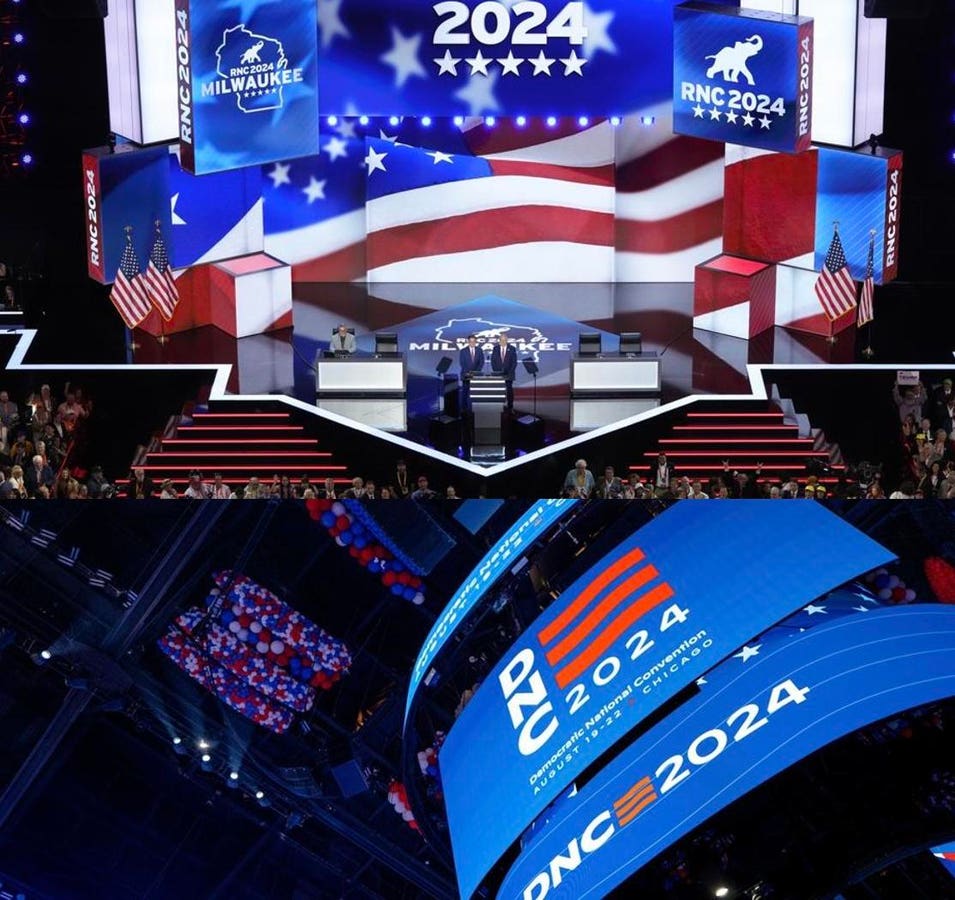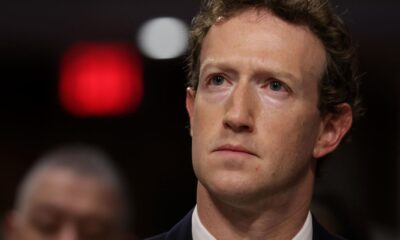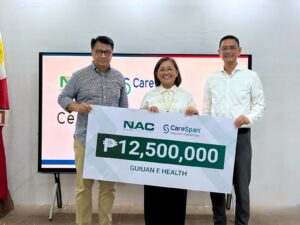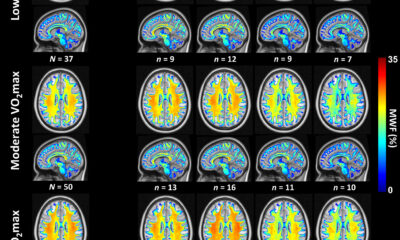Health
Convention invisibility teaches a crucial lesson in health policy

The invisibility of major health policy issues at both the Republican and Democratic conventions … [+]
It comes close to an iron rule: politics determines policy. In that context, the health policy issues, largely invisible at the Republican and Democratic conventions, taught a crucial political lesson.
Start with access. According to KFF (formerly the Kaiser Family Foundation), as of August 23, more than 25 million Americans have been disenrolled from Medicaid. Ten states, all dominated by Republican legislatures and/or governors, have refused to expand the program, leaving 2.8 million Americans needlessly uninsured .
But if you were to look at either convention to find protesters telling heartbreaking personal stories to humanize those statistics, you would look in vain. There were none.
The Poor People’s Army, a group that advocates for economic justice, invited reporters from both conventions to focus on one of the most pressing problems facing the poor and near-poor — not access to medical care, but the lack of basic housing.
Homelessness sets a record in 2023Homelessness affects one in 500 Americans, according to the National Alliance to End Homelessness, while the number of renters forced to pay more than 50 percent of their income has skyrocketed since 2015. The former is visible on the streets of every major city, while the latter is felt by millions of people on every paycheck.
The political lesson is clear. While support for Medicaid expansion was buried deep in the Democratic platform, there is no sign at the grassroots level of the kind of passionate commitment that could generate votes in a close election. Medicare, of course, is a separate issue, with both parties vowing to protect the program that holds dear to the hearts of the nation’s elderly. highest percentage of voting turnout of any age group.
Of course, even those with good health insurance often have to worry about medical costs KFF poll finding that a shocking 41% of American adults have medical debt. Although the phrase: “It’s the prices, stupid!” has become a bipartisan policy refrain, there are no swing state votes to leverage by harping on the local hospital’s alleged greed. So while he denounced “medical debt,” no one did.
On the other hand, Democrats repeatedly talked about the depredations of “Big Pharma.” The GOP platform contented itself with a vague promise to “expand access to new… prescription drug options” to address prescription drug costs that have “spiraled out of control.” Responsibility for those awards was not specified.
As for health insurers, there are articles about questionable denials of medical claims by major insurers United Healthcare And Human have generated headlines and expressions of outrage. But again, the grassroots response is key. There has been no public outcry remotely comparable to the HMO’s response in the 1990s. As a result, health insurers have largely abandoned the role of politically visible corporate villain.
A political campaign, as former President Bill Clinton noted in his Democratic Convention speech, is a job interview with the American people. As with any job interview, the total focus is on getting the job offer, knowing that if you do, much is possible, but if you don’t, nothing is. That means carefully tailoring every expression during the interview process to make a positive impression, while avoiding (hiding) anything that could ruin your chances, even if it’s a topic on which you’ve already expressed strong opinions . (See: GOP on Abortion and Gay Marriage or Democrats on Medicare for All.)
The lure of potential political power is what produces a second kind of invisibility, often with the greatest impact on policy. That is the invisibility of the big donors and wealthy lobbyists. They do not appear in the TV footage of the convention floor. They didn’t wear colorful costumes or big buttons. Instead, they gathered discreetly at the hotels where delegates lived and mingled with the private parties that attracted influential policymakers. All the while, they exerted the invisible influence that, behind closed doors, can help make or break a policy proposal.
To maintain access to “the space where it happens,” companies carefully contribute to both parties and to the individual candidates of both parties. A typical example is the contributor list of UnitedHealth Group, a company that ranks fourth in size on the Fortune 500 list, behind only Walmart, Amazon and Apple.
In the 2024 election cycle, UnitedHealth and its affiliates have given $151,343 to Kamala Harris and $57,491 to Donald Trump, according to the latest report from OpenSecrets. Roughly $329,000 was also donated to various Republican campaign committees, and another $200,000 to a Political Action Committee in support of Nikki Haley’s Republican Party primary. The various Democratic campaign committees received approximately $149,000. That’s on top of the $10.76 million spent on lobbying in 2023, OpenSecrets says.
Of course, none of this was said from the speakers’ podium at either conference. Instead, we heard repeated claims that they represented the “middle class.” a self-identified group that makes up the majority (54%) of the U.S. population. It is believed that this group, which is essential to the success of electives, cares little about Medicaid and sees MedicareAdvantage as a health insurance choice full of freebies. They don’t want to talk about it the 232,000 Americans who died because they didn’t get a Covid vaccine, and “climate change” did a topic that especially appeals to those who are already Democrats. What they do care about is costs, costs, costs.
If you are among those frustrated by the political invisibility of the multitude of pressing health care problems crying out for a solution, there is a solution: start your own PAC.













